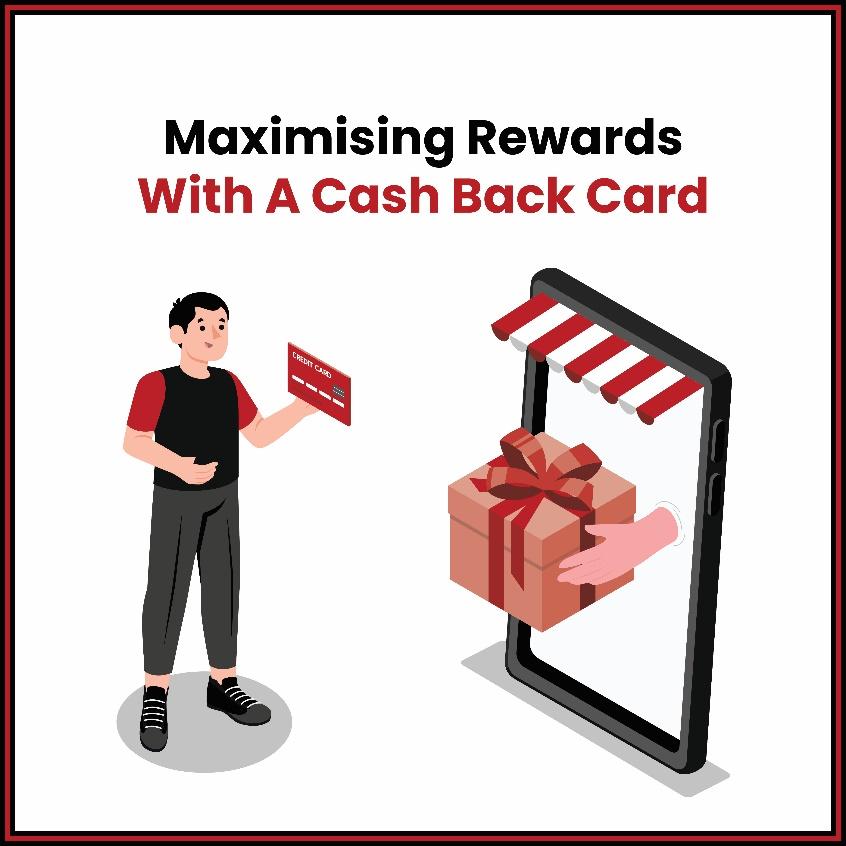Imagine this: you’re at the grocery store, swiping your credit card for everyday purchases. You earn rewards with every item you buy, whether it’s for your morning coffee or your weekly groceries. Over time, those small transactions accumulate, leading to a steady flow of cash back or travel points that you can redeem for exciting rewards. Sounds like a win-win, right?
But before you start swiping away, it’s crucial to take a step back. Is using your credit card for everyday purchases really the best move? What are the actual benefits, and what are the hidden risks? After all, accumulating rewards and cash back doesn’t come without its potential pitfalls.
In this blog, we’ll break down the pros and cons of using a credit card for everyday purchases, focusing on rewards like cash back, and help you decide if it’s worth the extra effort. We’ll also discuss how to choose the best cash back card for your spending habits and how to avoid common mistakes that could end up costing you more than the rewards are worth.
The Allure of Credit Card Rewards: Why They’re So Tempting
There’s no denying the widespread appeal of credit cards for managing everyday purchases. For many Canadians, having access to top-rated cash back credit cards presents an enticing opportunity to earn rewards on regular spending habits, whether it’s for groceries, gas, or even utility bills. These credit cards are specifically designed to cater to the needs of those who seek to benefit from their everyday expenditures rather than letting those expenses go unrewarded.
One of the primary attractions of cash back credit cards is the cash back feature that allows users to earn a percentage back on their purchases. Some cards offer cash back on all purchases, while others may focus on specific categories such as grocery stores, restaurants, or gas stations. This flexibility enables cardholders to choose a card that aligns with their spending habits, allowing them to maximize rewards based on their lifestyle.
Furthermore, many cash back credit cards come with enticing bonuses for signing up. Often, these bonuses manifest as an initial cash back amount that cardholders can earn after meeting a specific spending threshold within the first few months of opening their account. This not only provides an immediate benefit but also encourages consumers to make the most of their new credit card.
In addition to cashback rewards, some credit cards offer exclusive rewards programs that allow users to redeem their earnings for various perks. These might include travel rewards, gift cards for popular retailers, or even statement credits that can help offset future bills. This versatility in redeeming rewards allows cardholders to enjoy the benefits in a way that is most meaningful to them.
For individuals who already utilize a credit card for everyday purchases, the cash back setup can be incredibly rewarding. The principle is simple: the more you spend thoughtfully, the more you earn in return. Additionally, with some cards offering bonus categories that change periodically, cardholders can fine-tune their spending to maximize rewards in the areas where they spend the most. This can lead to significant savings over time, making cash back credit cards a wise choice for savvy consumers.
Weighing the Benefits: The Upsides of Everyday Credit Card Use
When used wisely, a credit card for everyday purchases can provide numerous benefits. Here are a few ways these cards can add value to your life:

1. Earning Rewards on Daily Expenses
The biggest draw of using a cash back card is the rewards you earn. Whether it’s a percentage back on every purchase or extra rewards for spending in specific categories, these points can quickly add up. With Amex cash back cards, for example, you could earn up to 5% back on certain purchases like groceries or dining out, which could significantly offset the costs of those day-to-day expenses.
2. Freebies and Perks
Beyond just cash back, many premium credit cards offer perks like access to airport lounges, concierge services, and even purchase protection for items you buy with your card. While these benefits are often associated with higher-tier cards, even lower-tier top-rated cash back credit cards often offer extra rewards for dining, entertainment, or travel-related purchases.
3. Building Your Credit Score
Using a credit card for everyday purchases can help you build or improve your credit score. Consistently paying off your balance on time and keeping your credit utilization low shows lenders that you’re financially responsible. Over time, this can open the door to better interest rates and more favourable terms when you apply for larger loans, like a mortgage.
4. Cash Flow Flexibility
When you make purchases on a credit card, you don’t have to pay for them right away. This provides a degree of flexibility in managing your cash flow. You have until your next billing cycle to pay off the balance, which can come in handy during months when you have higher-than-usual expenses, such as during the holidays.
The Risks: What Could Go Wrong?
While using a credit card for everyday purchases can have clear benefits, there are some risks to keep in mind. If not managed properly, the consequences can outweigh the rewards.

1. Overspending
One of the most common pitfalls of using a credit card for everyday purchases is the tendency to overspend. When you’re only required to make the minimum monthly payment, it becomes all too easy to lose track of how much you’re actually spending over time.
Those seemingly small extra purchases here and there can quickly snowball into a larger financial burden than anticipated. Additionally, cash back and reward offers can be incredibly enticing. They may tempt you to buy more than you truly need in an effort to maximize your rewards, leading to unnecessary expenditures.
To avoid falling into this trap, it is essential to stay disciplined with your spending habits. It’s important to remember that a cash back card should not be treated as an “anything goes” card. By exercising restraint and sticking to a well-thought-out budget, you can enjoy the benefits of using your credit card without the risk of overspending.
Consider tracking your expenses closely and setting specific spending limits for different categories to help maintain control. By integrating these strategies into your financial routine, you’ll not only earn rewards but also cultivate better money management skills that will serve you well in the long run.
2. High Interest Charges
Another potential downside of using a credit card for everyday purchases is the risk of incurring high-interest charges. While credit cards can offer convenience and rewards, they come with financial responsibilities that should not be overlooked. If you do not pay off your balance in full by the due date every month, you may face significant interest fees that can quickly diminish any rewards you’ve earned through your spending.
Many credit cards carry interest rates that can be alarmingly high, often ranging from 19% to 20% or even higher, depending on your credit score and the card’s terms. This means that if you carry a balance, the interest can add up quickly, making it challenging to truly benefit from the rewards system. For example, if you’ve earned points or cash back worth a certain dollar amount, those rewards may be negated by the interest you owe.
Moreover, accumulating debt can lead to a cycle of financial strain, where you find yourself continually paying just the minimum due and not making any real headway in reducing your balance. Therefore, while credit cards can provide useful perks and enhance buying power, it is crucial to manage them wisely in order to avoid these costly pitfalls.
3. Debt Accumulation
When used irresponsibly, a credit card intended for everyday purchases can lead to a troubling accumulation of debt. It’s easy to overlook the potential risks associated with credit card use, especially when lured by attractive rewards programs and the convenience they provide.
However, the reality is that, with high interest rates and various fees, even a small balance can quickly snowball into a much larger and more unmanageable debt. Missing payments or only making partial payments can escalate the situation, resulting in financial stress.
While the idea of earning rewards, cash back, or travel points might seem enticing, these benefits are not worth it if they lead you into a cycle of debt that you cannot escape. The key to benefiting from credit card usage lies in responsible financial management. To safeguard against high-interest debt, always aim to pay off your balance in full each month.
Doing so not only helps maintain a healthy credit score but also allows you to enjoy the perks of your credit card without the burden of debt. Ultimately, adopting a disciplined approach to credit card usage can promote financial stability and ensure that you are leveraging the advantages of credit without falling into the trap of debt.
4. Impact on Your Credit Score
If you carry a balance on your cash back card, it can negatively impact your credit score. Not only do you have to worry about interest charges, but your credit utilization rate (the percentage of your available credit you’re using) will also increase. This can hurt your score and make it more difficult to secure loans in the future.
How to Maximise Your Rewards and Minimise the Risks
If you’re committed to using a credit card for everyday purchases, here are a few tips to ensure that the benefits outweigh the risks:
1. Pay Your Balance in Full Each Month
To avoid interest charges, always aim to pay off your balance in full each month. This is one of the most important habits for managing a cash back card effectively. By doing so, you’ll earn rewards without the burden of interest piling up.
2. Know Your Spending Categories
Many top-rated cash back credit cards offer extra rewards in certain categories. Some cards give higher cash back rates for groceries, while others offer more for gas, dining, or even travel. Take advantage of these bonus categories to maximize the rewards you earn.
3. Set a Budget and Stick to It
Avoid overspending by setting a clear budget for your credit card for everyday purchases. Track your spending and make sure you’re not buying things just to earn rewards. Staying within your budget will ensure you don’t end up in debt while still earning the rewards that matter most to you.
4. Watch Out for Fees
Be aware of any annual fees or additional charges associated with your card. Some premium credit cards come with high annual fees that might outweigh the value of the rewards you’re earning, especially if you’re not using the card enough to justify the fee.
Conclusion: Is It Really Worth It?
Using a credit card for everyday purchases can certainly be worth it if you’re diligent about paying off your balance, staying within your budget, and choosing a card that aligns with your spending habits. The rewards and benefits of a cash back card can be significant, especially when used responsibly.
However, it’s important to understand the potential risks involved—overspending, high-interest charges, and debt accumulation can quickly turn those rewards into a costly mistake. If you’re looking to earn rewards on your everyday purchases, make sure you choose a top-rated cash back credit card that suits your lifestyle, and always aim to pay off your balance in full each month to avoid the pitfalls of credit card debt.
With the right approach, your credit card for everyday purchases can be a powerful tool in managing your finances while earning valuable rewards along the way.
Where To Apply For The Best Canadian Credit Cards?
Great Canadian Rebates is an online platform that lets Members compare credit card options available in Canada and apply for the one that best suits their financial and lifestyle requirements. It’s free to join, and Members can also choose from over 700 well-known merchants and take advantage of great rebates, deals, and discounts.


